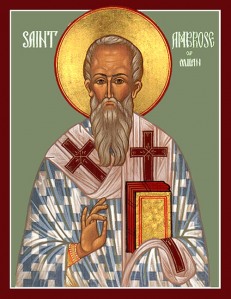 He [the Holy Spirit] does not have a limited and circumscribed power because He is always in all things and everywhere, which assuredly is the property of Divinity and Lordship, for: “The earth is the Lord’s and the fulness thereof” (Ps. 83:1).
He [the Holy Spirit] does not have a limited and circumscribed power because He is always in all things and everywhere, which assuredly is the property of Divinity and Lordship, for: “The earth is the Lord’s and the fulness thereof” (Ps. 83:1).
And so, when the Lord appointed His servants the apostles, that we might recognize that the creature was one thing and the grace of the Spirit another, He appointed them to different places, because all could not be everywhere at once.
But He gave the Holy Spirit to all, to shed upon the apostles – though separated – the gift of indivisible grace.
The persons, then, were different, but the accomplishment of the working was in all one, because the Holy Spirit is one of Whom it is said: “Ye shall receive power, even the Holy Spirit coming upon you, and ye shall be witnesses to Me in Jerusalem and in all Judea and Samaria, and unto the ends of the earth” (Acts 1:8).
The Holy Spirit, then, is uncircumscribed and infinite, Who infused Himself into the minds of the disciples throughout the separate divisions of distant regions, and the remote bounds of the whole world, Whom nothing is able to escape or to deceive.
And therefore holy David says: “Whither shall I go from Thy Spirit, or whither shall I flee from Thy face” (Ps. 138:7). Of what angel does the Scripture say this? Of what dominion? Of what power? Of what angel do we find the power diffused over many? For angels were sent to few, but the Holy Spirit was poured upon whole peoples.
Who, then, can doubt that that is divine which is shed upon many at once and is not seen; but that that is corporeal which is seen and held by individuals? But in like manner as the Spirit in sanctifying the apostles is not a partaker of human nature; so, too, in sanctifying angels, dominions, and powers, He has no partnership with creatures.
[…] Since angels come down to men to assist them, it must be understood that the nature of angels is higher as it receives more of the grace of the Spirit, and that the favour awarded to us and to them comes from the same author.
But how great is that grace which makes even the lower nature of the lot of men equal to the gifts received by angels, as the Lord Himself promised, saying: “Ye shall be as the angels in heaven.” Nor is it difficult, for He Who made those angels in the Spirit will by the same grace make men also equal to the angels.
Ambrose of Milan (c. 337-397): On the Holy Spirit, book 1, chapters 81-84.
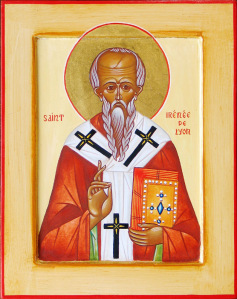 Continued from
Continued from 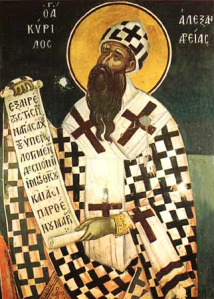 Continued from
Continued from 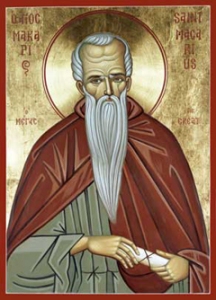 The glory of Moses which he had upon his countenance was a figure of the true glory.
The glory of Moses which he had upon his countenance was a figure of the true glory.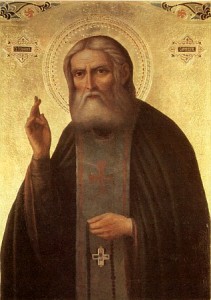
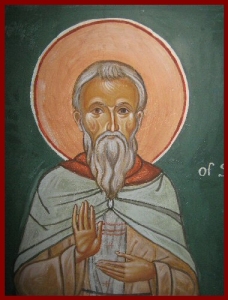 The energy of the Holy Spirit, which we have already mystically received in baptism, is realized in two ways.
The energy of the Holy Spirit, which we have already mystically received in baptism, is realized in two ways.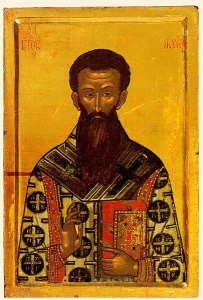 A short while ago, with the strong eyes of faith, we beheld Christ ascending, no less clearly than those accounted worthy to be eye-witnesses.
A short while ago, with the strong eyes of faith, we beheld Christ ascending, no less clearly than those accounted worthy to be eye-witnesses.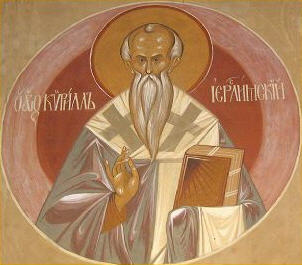 The water that I shall give them will become in them a fountain of living water, welling up into eternal life.
The water that I shall give them will become in them a fountain of living water, welling up into eternal life.  Jesus taught the holy lore to his disciples before his passion, and after his resurrection he was continuing among them these forty days, from the holy Eastertide until this present day, and in many ways reproved and tried his disciples, and repeated that which he had before taught, for the perfection of doctrine and right faith.
Jesus taught the holy lore to his disciples before his passion, and after his resurrection he was continuing among them these forty days, from the holy Eastertide until this present day, and in many ways reproved and tried his disciples, and repeated that which he had before taught, for the perfection of doctrine and right faith.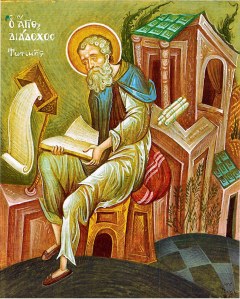 Only the Holy Spirit can purify the intellect, for unless a greater power comes and overthrows the despoiler, what he has taken captive will never be set free (cf Luke 11:21-22).
Only the Holy Spirit can purify the intellect, for unless a greater power comes and overthrows the despoiler, what he has taken captive will never be set free (cf Luke 11:21-22).







